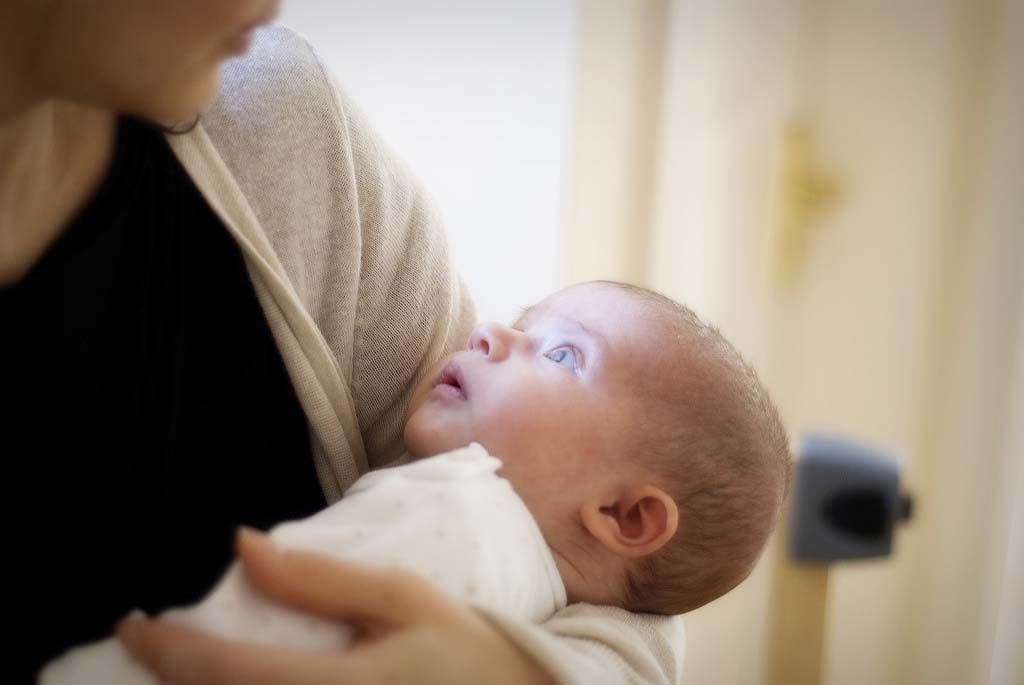
Reviving talks of a long-discussed proposal, a new study has recommended that nurses in Qatar visit newborn babies and their mothers at home, instead of requiring them to go to the hospital for postpartum check-ups.
The study, commissioned by the nation’s Primary Health Care Corporation (PHCC), also recommended providing support with breast-feeding, as well as offering pre-natal classes on childcare, nutrition clinics and pregnancy awareness programs for first-time mothers.
Some details of the report, which appeared in Arabic daily newspaper Al Watan, focus on ways of improving primary healthcare for mothers and their new-born babies as part of the corporation’s five-year primary health care strategy 2013-18.

The state-funded PHCC has a mandate to improve preventative healthcare and runs community health programs, including 21 local clinics across Qatar, nurses in independent (local) schools, health awareness initiatives and social work services.
The new proposals come as Qatar’s birth rate is set to soar – up to 27,476 babies a year by 2015, compared to around 20,000 in 2010, the Peninsula reports.
It is compulsory to give birth in hospital in Qatar, and most women opt for the cost-effective Hamad Medical Corp. hospitals – including Women’s Hospital in Central Doha, which is Qatar’s busiest maternity department at 17,000 births a year.
There is currently no provision in the public healthcare sector for post-natal home visits to mothers, though some private clinics, such as the Feto Maternal Center, do visit new mothers and babies in their homes.
The report does not give any details about the new proposals for post-natal home visits or a timeline for their implementation.
Previous plans
But at the end of last year, HMC said it had been considering introducing a similar policy for mothers who had given birth with no complications.
In a bid to reduce pressure on the over-stretched hospital services, HMC said at the time it would consider discharging from hospital most mothers and babies within 16 hours of delivery.
The proposal stated that follow-up care would be provided by teams of nurses at home, and the plans were to be introduced by the beginning of this year. However, it appears these have not yet been implemented.
An HMC spokesperson told Doha News today that they had no updates on the plan.
Around the same time the proposal was discussed, Heila Jawhar, HMC’s assistant executive director of Nursery Administration, said:
“The hospital is facing a severe shortage of nurses. And the number of beds at the hospital is not keeping pace with the growth of the population.”
It is not clear how, with the ongoing shortage of nurses, PHCC would propose to implement new plans for home visits.
Global perspective
Home visits are common practice in some countries such as the UK and Australia, although the level of service and frequency of visits vary.
Under the British NHS post-natal care strategy, midwives carry out home visits the day after discharge and up to 28 days after birth, if deemed necessary.
Research has found that frequent home visits can help improve parenting skills, increase the detection of postnatal depression and reduce the risk of childhood injury.
The World Health Organization (WHO) recommends home visits in the first week following birth to ensure optimum care of the mother and new-born.
In addition to checking on the physical health of mother and baby, regular contact with health professionals can also pick up on and keep in check potential mental health issues such as post-natal depression among mothers, a UK study found.
However, providing such a service is costly and in areas of the UK, mothers say they are often only visited once at home.
Mothers’ support
Many mothers in Qatar have given the proposed new system a thumbs up, saying it could help pick up on infections and other medical issues earlier and would provide a much-needed information resource, especially for first-time moms.
Wendy, who has a 17-month-old toddler, told Doha News that she suffered a serious infection following an emergency cesarean section, which was not initially picked up by doctors. She continued:
“Had I had any home visits like under the UK system I have no doubt that the infection that took hold would have been detected sooner and I would not have had many more weeks of pain, further minor surgery & multiple doses of antibiotics.”
Mother-of-three Alice said she also supported a home visit system, which would mean that new mothers wouldn’t have to drive to the hospital with their babies for a check-up or endure long waiting times before they can be seen.
She added:
“Home visits are important as it gives the midwife or baby nurse an opportunity to make sure that the baby has a safe sleeping environment, that the baby is doing ok, and also to make sure that the mother is coping; as people tend to be more candid in their own homes. It’s also really nice to be able to ask practical questions of an expert.”
Other initiatives that the PHCC hopes to roll out include better early detection of pregnancy, particularly among first-time mothers, to ensure they receive optimum health care.
According to a study quoted in the Peninsula, just over half (51.9 percent) of women in Qatar do not realize they are pregnant until about three months into their pregnancy, which has potential side effects particularly for mothers who have gestational diabetes.
With regards to breastfeeding, Qatar’s healthcare officials have been making a big push for the practice in the past few years.
Most Qatari women do not breastfeed their children due to a lack of professional support and information about its benefits, research by Sidra Medical and Research Center found.
Unicef figures from 2005 (the most recent data available) state that only 12 percent of mothers exclusively breastfeed their children in Qatar, compared to 37 percent globally – far below the Unicef world target of 50 percent.
What do you think of the home visit plans? Thoughts?







